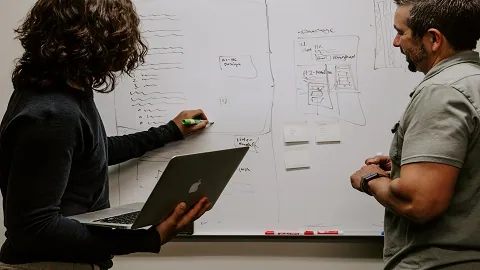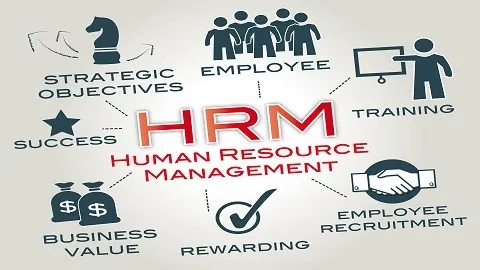Project Manager Career Path
Project managers are the architects of successful projects, guiding them from inception to completion.
They are the ones who set the course, ensure smooth execution, and lead their teams to victory. Across key market worldwide, this profession has seen a steady rise in demand, making it an appealing career choice for anyone pursuing long-term job security and prosperity.
- Introduction
- Typical Job Responsibilities
- Standard Work Environment
- Suggested Work Experience
- Recommended Qualifications
- Projected Career Map
- Beneficial Professional Development
- Learn More
- Conclusion
Project management duties encompass everything from initial planning to final delivery. They define project objectives and create detailed work schedules to ensure projects stay on track. They are resource allocators, managing budgets, and leading project teams to ensure everyone is marching in the same direction. Monitoring progress and identifying potential risks are crucial tasks. Additionally, project managers are skilled communicators who keep stakeholders informed and swiftly resolve any issues that arise. They also maintain detailed project documentation, promote collaboration, and ensure that the final deliverables meet quality standards.
Project Manager Career Path
Project managers are the architects of successful projects, guiding them from inception to completion.
They are the ones who set the course, ensure smooth execution, and lead their teams to victory. Across key market worldwide, this profession has seen a steady rise in demand, making it an appealing career choice for anyone pursuing long-term job security and prosperity.
Project management duties encompass everything from initial planning to final delivery. They define project objectives and create detailed work schedules to ensure projects stay on track. They are resource allocators, managing budgets, and leading project teams to ensure everyone is marching in the same direction. Monitoring progress and identifying potential risks are crucial tasks. Additionally, project managers are skilled communicators who keep stakeholders informed and swiftly resolve any issues that arise. They also maintain detailed project documentation, promote collaboration, and ensure that the final deliverables meet quality standards.
The project managers operates in a fast-paces, dynamic office setting. They are the hub of cross-functional teams, often utilising project management software for meticulous planning and monitoring. Regular meetings with stakeholders, clients, and team members are part of their routine. The job demands adaptability as priorities can change in a heartbeat, and occasional travel may be necessary for on-site assessments. Deadlines and time-sensitive decisions are everyday challenges, and they must stay focused in a fast-paced environment. Strong communication, organisation, and leadership skills are non-negotiable in this dynamic work setting.
The ideal path to becoming a project manager often involves a steady progression in the field of project management. It begins with entry-level positions to grasp the fundamentals, then moves on to roles that involve coordinating tasks and teams, deepening expertise. Exposure to diverse industries and project scopes enhances adaptability, and previous leadership responsibilities strengthen capabilities. To be considered a seasoned project manager, having a minimum of 3-5 years of progressively responsible project management roles is recommended to progress to more advanced roles.
An endorsed certificate or diploma in fields such as business or management provides a solid foundation for a career in project management. Advanced degrees or certifications like the Project Management Professional (PMP) can add significant value to a candidate’s CV. To truly excel in this role, a deep understanding of project management methodologies, tools, and practices is crucial. Strong leadership, communication, and problem-solving skills are a must. Demonstrated experience in managing projects, ideally in diverse industries, showcases an ability to handle complexities. Continuous learning and staying updated with industry trends enhance a project manager's qualifications.
A project manager's journey typically starts as a junior project coordinator, where the focus is primarily on task execution. Advancing to the role of project manager, they take on more significant responsibilities and refine their leadership and communication skills. With experience under their belt, they can become senior project managers, handling larger and more complex initiatives, and even mentoring junior staff. Progressing further, some may transition to roles like program manager, which involves managing multiple projects aligned with organisational goals. And for the most ambitious, the path may lead to roles like director of project management or chief operating officer, where they can leverage their strategic vision and extensive expertise to guide entire business operations.
For project managers, the journey doesn't end with a degree or certification; it's a continuous process. Attending workshops and seminars on evolving project management methodologies is essential to keep their skills sharp. Pursuing certifications like PMP or Agile credentials demonstrates their expertise and dedication. Leadership training helps them fine-tune their managerial abilities. Developing soft skills such as negotiation and conflict resolution fosters effective collaboration. Engaging in industry conferences and networking events expands their knowledge and contact base. Exploring advanced degrees like an MBA can provide broader business acumen. Well-rounded development ensures project managers remain adaptable and poised to tackle complex challenges.
Potential Pros & Cons of Freelancing vs Full-Time Employment
Freelancing offers project managers autonomy, flexible schedules, and varied projects, with the added bonus of becoming your own boss and managing your own workload. However, it can also bring inconsistent income, the need for stringent self-management, and a lack of benefits into the equation.
Conversely, full-time employment provides stability, benefits, and a steady income, which can significantly contribute to financial security. However, it might limit the diversity of projects they work on and restrict their flexibility. In both freelancing and full-time roles, strong project management skills are pivotal.
Freelancing is a good fit for those seeking independence, while full-time roles are ideal for those prioritising stability. Balancing the pros and cons is crucial in deciding the most suitable career path for you.
The role of a project manager is dynamic and multifaceted one, calling for a unique blend of technical acumen and interpersonal skills. Their ability to navigate challenges, lead teams, and ensure project success within constraints is indispensable across industries. By continuously developing their skills and adapting to evolving trends, project managers play a pivotal role in shaping successful ventures and driving organizational growth.























